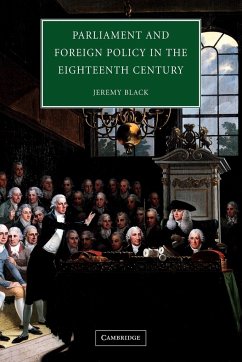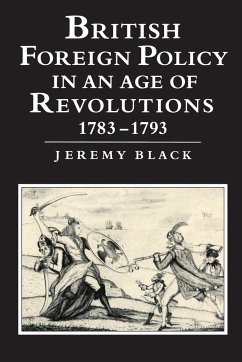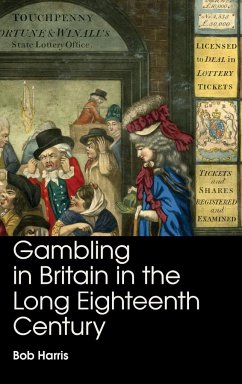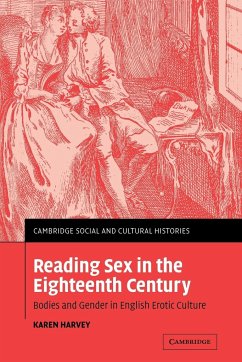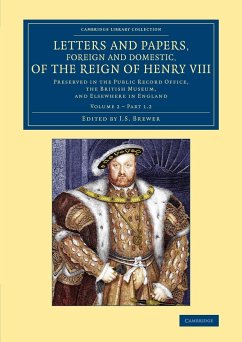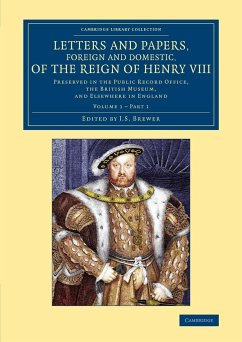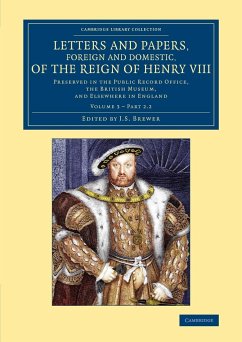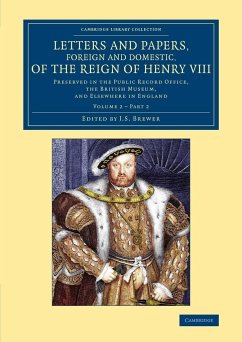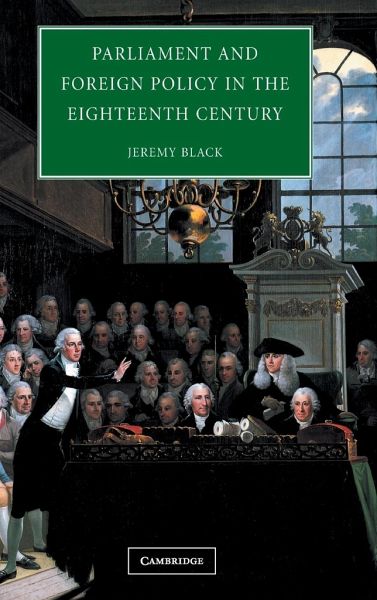
Parliament and Foreign Policy in the Eighteenth Century
Versandkostenfrei!
Versandfertig in 1-2 Wochen
103,99 €
inkl. MwSt.
Weitere Ausgaben:

PAYBACK Punkte
52 °P sammeln!
Drawing on a wide range of British and foreign archival sources, this book tackles the role of Parliament in the conduct of eighteenth-century foreign policy, the impact of this policy on parliamentary politics, and the quality of parliamentary debates. It is also an important study for our assessment of eighteenth-century Britain, and also, more generally, for an understanding of the role of contingency in the assessment of political systems. Reflecting over a quarter-century of work on parliamentary sources, the book highlights the influence of Parliament, positive and negative, direct and i...
Drawing on a wide range of British and foreign archival sources, this book tackles the role of Parliament in the conduct of eighteenth-century foreign policy, the impact of this policy on parliamentary politics, and the quality of parliamentary debates. It is also an important study for our assessment of eighteenth-century Britain, and also, more generally, for an understanding of the role of contingency in the assessment of political systems. Reflecting over a quarter-century of work on parliamentary sources, the book highlights the influence of Parliament, positive and negative, direct and indirect, on foreign policy and politics. It also has great contemporary relevance as we consider the effectiveness of democratic states when confronting authoritarian rivals, and the rights of representative bodies to be consulted before wars are launched.





